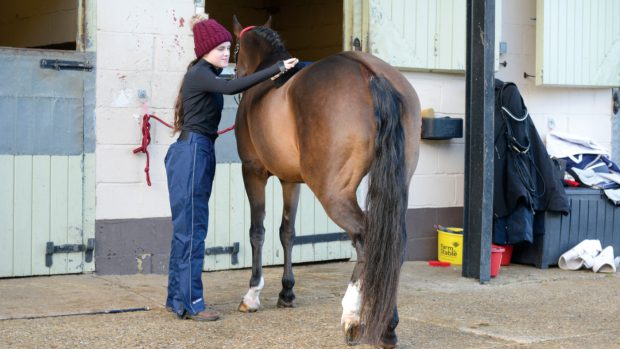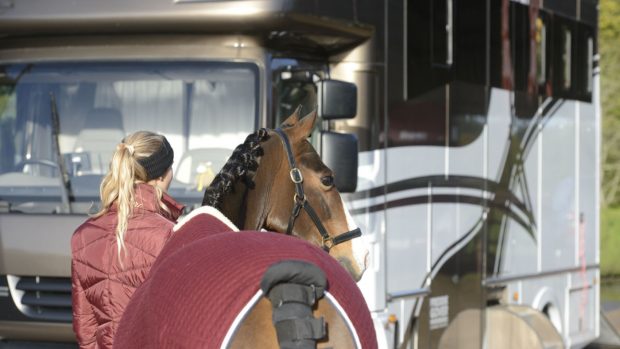BRITAIN’S leaving the EU could be “an opportunity to make things better”, according to one industry figure.
Kevin Needham, director of Newmarket-based BBA Shipping & Transport Ltd, believes Thursday’s (23 June) vote could mean benefits in terms of disease control.
He explained that horses can currently move freely between member states on the EU’s Trade Control and Expert System, Traces, for which they must have health certificates but do not have to be tested for infectious diseases before they enter different member states.
“As happened to me recently, a horse came from Holland looking fine, then got here and started looking unwell,” Mr Needham said.
“It was tested and it’s positive for [serious viral disease] Equine Viral Arteritis. So the government then says it has to be put to sleep or castrated.
“Horses can come from anywhere in the EU without being tested as it’s a single market. That’s something we could change now.
“This could be an opportunity to make things better for UK horses.”
Mr Needham said that movement of FEI competition and racehorses between France, the UK and Ireland is covered by the Tripartite Agreement, which pre-dates Britain’s EU membership and should not therefore be affected.
“The EU could choose to be awkward [on the movement of other horses],” he added. “They could insist on blood tests for UK horses, and we could impose one on horses coming in from Europe but that’s a choice both parties would have to make.
“But there will still be demand for trade, and there’s a high likelihood that not a lot will change.
“There’s a possible downside, the EU might impose VAT on horses, so a horse going in has to be taxed and customs-cleared, but there might be bigger markets outside the EU.
“Given the position we’re in now, we have to see it as an opportunity to change things for the better.”
Claire Williams, chief executive of the British Equestrian Trade Association, said it is too early to determine the effect Britain’s leaving would have on businesses.
She said one immediate apparent effect was the devaluing of the pound overnight, which means those buying products from abroad, such as from the Far East where many items are priced in American dollars, are getting less for their money.
But the change also means those selling abroad will get better value, as their products will be cheaper.
“This may be a gut reaction and currency may stabilise and increase in value again,” she said.
“But apart from that, any other impact will be impossible to see yet, until we get reaction from countries we trade with,” she added.
“Britain produces a lot of equestrian products which are well received overseas. People want those products and will be prepared to trade with us, and we buy a lot from Europe.
“The shape trade takes going forwards – it’s anyone’s guess what happens.”
Ms Williams said it could be up to two years until businesses know the full impact, as this is how long it could take to agree the terms of Britain’s exit.
But she added: “We’ll be monitoring the situation and where we can, advising companies. It’ll be very much a watching brief, keeping an eye on where things are going, how people are reacting and how it impacts on businesses.
“It’s a matter of watching and waiting.”
Related articles:
- Brexit: what you need to know before you vote
- ‘We would be better off leaving’: Defra minister calls for Britain to leave the EU
- Walk the Blair Europeans showjumping course *PICTURES*
The Royal College of Veterinary Surgeons released a statement which read: “It is difficult to say at this stage how the vote will affect current arrangements, such as the Mutual Recognition of Professional Qualifications Directive (MRPQ) that allows European vets to practise in the UK and vice-versa, and it is likely to be some time before we know.
“Needless to say, we will be working with the Defra to minimise any disruption from the transition process. As always, we will work to maintain and increase the UK’s high standards of veterinary care and animal welfare.”




